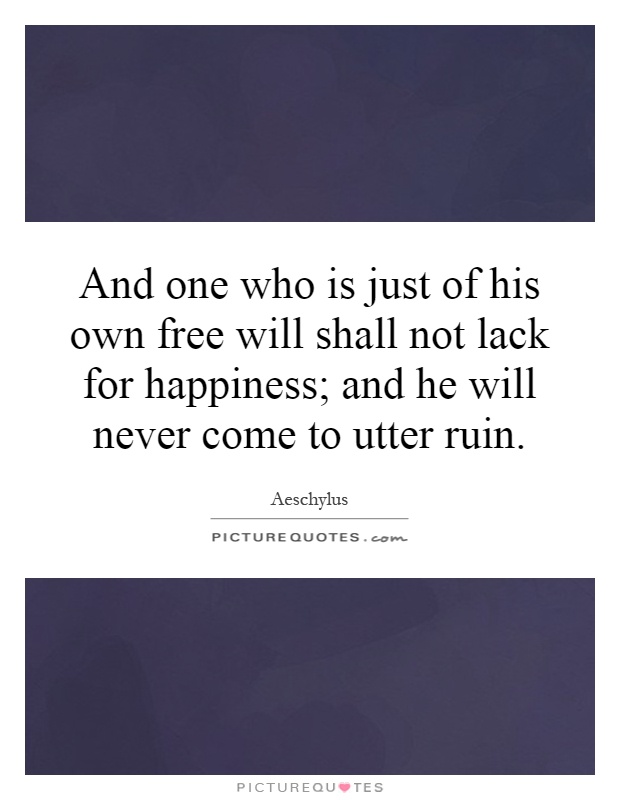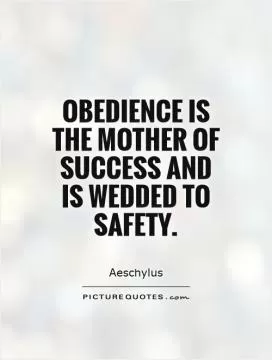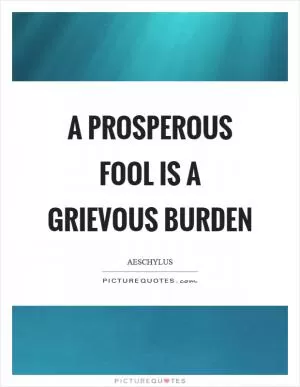And one who is just of his own free will shall not lack for happiness; and he will never come to utter ruin

And one who is just of his own free will shall not lack for happiness; and he will never come to utter ruin
In the works of Aeschylus, the concept of justice and free will is a recurring theme that is explored in depth. The quote "And one who is just of his own free will shall not lack for happiness; and he will never come to utter ruin" encapsulates the idea that those who choose to act justly and virtuously will ultimately be rewarded and protected from harm.Aeschylus, a renowned Greek tragedian, often delved into the complexities of human nature and the consequences of one's actions. In his plays, characters are often faced with moral dilemmas and must make choices that will determine their fate. Those who choose to act with integrity and righteousness are portrayed as being favored by the gods and ultimately find happiness and fulfillment.
The idea of free will is also a central theme in Aeschylus' works. The quote suggests that individuals have the power to choose their own path and make decisions that will ultimately lead to their own happiness or downfall. By exercising their free will to act justly, individuals can avoid the pitfalls of greed, corruption, and deceit that often lead to ruin.












 Friendship Quotes
Friendship Quotes Love Quotes
Love Quotes Life Quotes
Life Quotes Funny Quotes
Funny Quotes Motivational Quotes
Motivational Quotes Inspirational Quotes
Inspirational Quotes